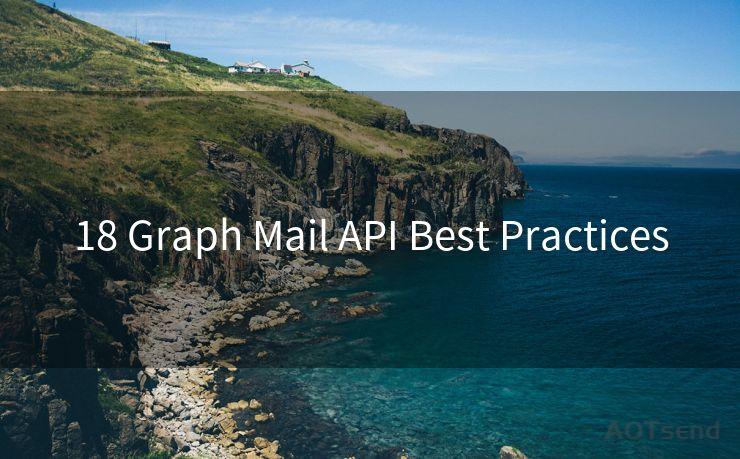18 Graph Mail API Best Practices




Introduction
When integrating with the Graph Mail API, it's essential to follow best practices to ensure efficient, secure, and reliable communication. In this article, we'll explore 18 key best practices that every developer should know when working with the Graph Mail API.
1. Understand the API Basics
Before diving into the deep end, familiarize yourself with the fundamentals of the Graph Mail API. Understand its capabilities, limitations, and the various endpoints it exposes.
2. Authenticate Securely
Always use secure authentication methods provided by the API. OAuth 2.0 is a common and secure way to authenticate with the Graph Mail API.
3. Manage Access Tokens
Properly handle and store access tokens. Refresh tokens periodically and ensure their security to prevent unauthorized access.
4. Optimize API Requests
Minimize the number of API requests by batching operations and using filters to reduce unnecessary data retrieval.
5. Handle Rate Limits
Be aware of API rate limits and implement proper backoff strategies to avoid hitting these limits.
6. Error Handling
Implement robust error handling mechanisms to gracefully deal with API failures and provide meaningful feedback to users.
7. Use Pagination
When retrieving large datasets, utilize pagination to fetch data in smaller chunks, reducing memory usage and improving performance.
8. Monitor and Log
Regularly monitor API usage and log all activities for troubleshooting and auditing purposes.
9. Cache Appropriately
Caching can significantly improve performance. However, be mindful of caching sensitive or frequently changing data.
10. Test in a Sandbox Environment
Before deploying to production, test your integration in a safe, sandboxed environment to identify and fix potential issues.
11. Keep Up to Date
Stay informed about API updates and changes. Subscribe to official channels for announcements and maintain your integration accordingly.
12. Protect User Privacy
Ensure that user data is handled securely and in compliance with privacy regulations like GDPR.
13. Use HTTPS
Always communicate with the Graph Mail API over HTTPS to ensure data integrity and security.
14. Validate Input
Sanitize and validate all input data to prevent injection attacks and ensure data quality.
15. Implement Retry Logic
Network issues or temporary server outages can occur. Implement retry logic with exponential backoff to handle such situations gracefully.
16. Document Your Integration
Maintain clear documentation on your API integration for future reference and ease of maintenance.
17. Monitor Performance
Regularly check the performance of your API calls and optimize where necessary to ensure a smooth user experience.
18. Get Community Support
Engage with the Graph Mail API community. Participate in forums, ask questions, and share your experiences for mutual learning.

By adhering to these best practices, you can build a robust and efficient integration with the Graph Mail API, ensuring a smooth and secure experience for your users.
🔔🔔🔔
【AOTsend Email API】:AOTsend is a Managed Email Service for sending transactional emails. Support Email Types: reminders, authentication, confirmations, notifications, verification codes, invoices, password resets, account activations, billing statements, two-factor authentication (2FA), and one-time passwords (OTP) emails, etc. $0.28 per 1000 Emails. 99% Delivery, 98% Inbox Rate.
You might be interested in:
Why did we start the AOTsend project, Brand Story?
What is a Managed Email API, How it Works?
Best 25+ Email Marketing Platforms (Authority,Keywords&Traffic Comparison)
Best 24+ Email Marketing Service (Price, Pros&Cons Comparison)
Email APIs vs SMTP: How they Works, Any Difference?




Scan the QR code to access on your mobile device.
Copyright notice: This article is published by AotSend. Reproduction requires attribution.
Article Link:https://www.mailwot.com/p6636.html



